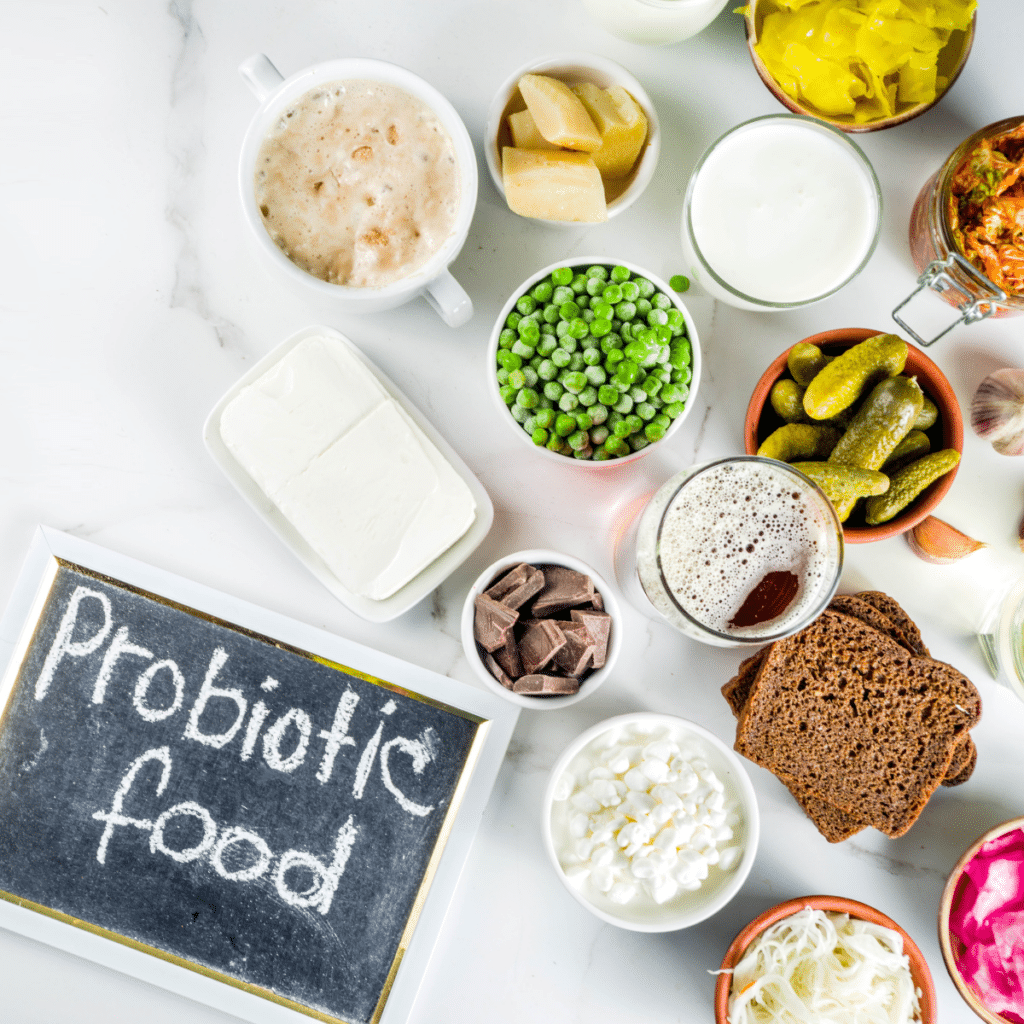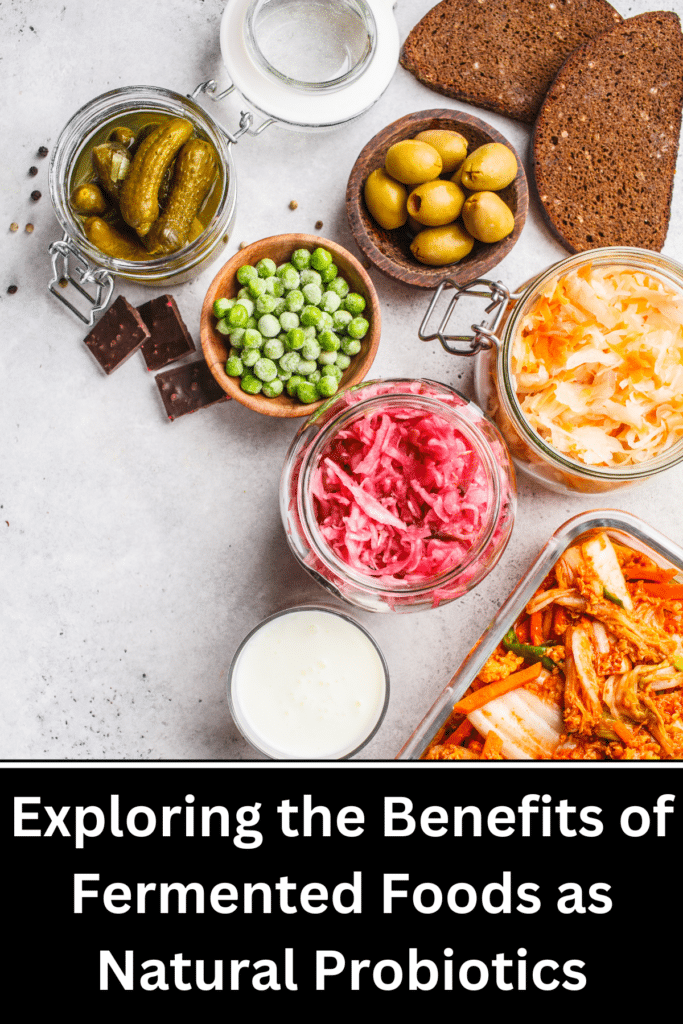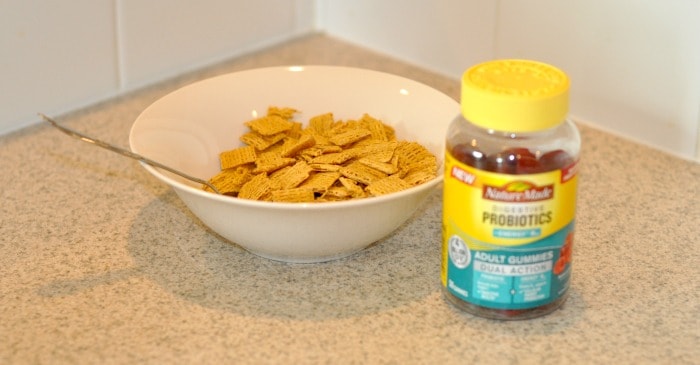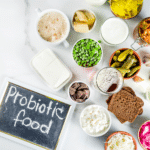While many civilizations have always utilized fermented foods, their pervasiveness has recently increased as more people have become aware of their possible health advantages.
Particularly for their function as organic probiotics, fermented foods are gaining popularity. In order to maintain a healthy gut microbiota, which is essential for overall well-being, probiotics are helpful microorganisms.
This article attempts to explore the advantages of naturally occurring probiotics found in fermented meals.

What Are Fermented Foods?
Microorganisms, such as bacteria, yeast, or fungi, transform carbohydrates into alcohol, organic acids, or gases during fermentation, a natural metabolic process.
By undergoing this transformation, the food is improved in terms of flavor, texture, and preservation; and probiotics, or helpful bacteria, are added to the finished product. Yogurt, sauerkraut, kimchi, kombucha, and sourdough bread are a few typical examples of fermented foods.
Due to the probiotics, enzymes, vitamins, and minerals present in these meals, they are not only delicious but also provide a wealth of health advantages.
Fermented Foods as Natural Probiotics
Natural probiotics are found in fermented foods, which have many positive health effects. Live bacteria or yeasts are known as probiotics, and they have beneficial benefits on the body, particularly the gut.
These helpful microbes enter our digestive tract when we eat fermented foods, balancing and diversifying the gut microbiome. A higher concentration of advantageous bacteria is present in the finished product as a result of the fermentation process, which improves the growth and activity of these probiotics.
These probiotics support overall gut health, increase nutrient absorption, strengthen the immune system, and aid with digestion. A tasty and healthy way to enhance our health is by including fermented foods in our meals.
Health Benefits of Fermented Foods
Because they include probiotics and other bioactive substances, fermented foods provide a number of health advantages. Including fermented foods in your diet has a number of benefits, some of which are listed below:
- Improved Digestion
The good bacteria included in fermented meals aid in the digestion of nutrients and the breakdown of complex carbohydrates. This can help with constipation, gas, and other digestive problems like bloating.
- Enhanced Gut Health
By enhancing the diversity and balance of beneficial bacteria in the intestines, fermented foods support a healthy gut microbiome. Improved immunity, decreased inflammation, better digestion, and even possible advantages for mental health are all linked to healthy gut flora. Additionally, incorporating fiber supplements with colon cleansing properties can further contribute to maintaining a well-functioning digestive system.
- Boosted Immune System
By encouraging the creation of antibodies and boosting immune cell function, the probiotics in fermented foods benefit the immune system. A balanced gut microbiota can lessen the severity of some illnesses and aid in the fight against infections.
- Reduced Inflammation
Short-chain fatty acids and antioxidants are two bioactive substances you can find in fermented foods that have anti-inflammatory activities. The symptoms of inflammatory diseases, including arthritis and inflammatory bowel disease, may be lessened by fermented foods’ ability to reduce inflammation in the body.
- Mental Health Benefits
Recent studies point to the existence of the gut-brain axis—a connection between the gut and the brain. By modifying gut microbiota, the consumption of fermented foods may benefit mental health and may lessen the symptoms of depression and anxiety.
- Potential Weight Management
Foods that have undergone fermentation may help with weight management, according to certain research. Probiotics may help with weight reduction or maintenance by influencing the body’s ability to control its metabolism, appetite, and energy levels.

Tips for Incorporating Fermented Foods into the Diet
Consuming fermented foods regularly is a great way to get their health advantages and spice up your diet. Here are some pointers to help you start including fermented foods in your diet:
- Start Slowly
Start by incorporating tiny amounts of fermented foods into your diet if you’re new to them, then gradually increase the portion sizes. This lessens the possibility of any digestive discomfort and lets your body become used to the good bacteria.
- Choose a Variety
Investigate many fermented food varieties to diversify your probiotic consumption. Include selections such as yogurt, kefir, pickles, kimchi, sauerkraut, kombucha, miso, and tempeh. Each item has a distinct flavor and a variety of healthy bacteria.
- DIY Fermentation
Think about producing your own homemade fermented foods. In this manner, both the materials and the fermentation process are within your control. To help you through the process, there are several resources available, such as recipes, starting cultures, and fermentation kits.
- Pair with Meals
Include fermented foods in your meals as toppers, sides, or condiments. For instance, incorporate sauerkraut or kimchi into grain bowls, salads, or sandwiches. Drink miso soup as an appetizer or use yogurt as the base for smoothies.
- Get Creative in Cooking
Investigate cooking with fermented ingredients. Use yogurt or kefir as a creamy pasta sauce or a marinade for meat. Miso may provide depth of flavor to dressings, sauces, and glazes.
- Snack on Fermented Foods
Fermented foods make a quick and wholesome snack alternative, so have them on hand. As a lunchtime pick-me-up, consume some yogurt, pickles, or kombucha.
Conclusion
A wide range of health advantages are provided by fermented foods, which act as natural probiotics. They promote healthy digestion, strengthen the immune system, lessen inflammation, and may even improve mental wellness.
We can promote a favorable gut microbiome and enhance general health by including fermented foods in our diets. Let’s embrace these tasty and nourishing foods as important allies in our search for optimal health, whether it’s enjoying a bowl of yogurt, relishing the tang of sauerkraut, or sipping kombucha.

Here are a Few More Healthy Tips for You:
Healthier Holiday Treats for School Parties

Helping Kids Make Healthy Eating Choices During the Holidays

5 Crazy Healthy Morning Hacks


